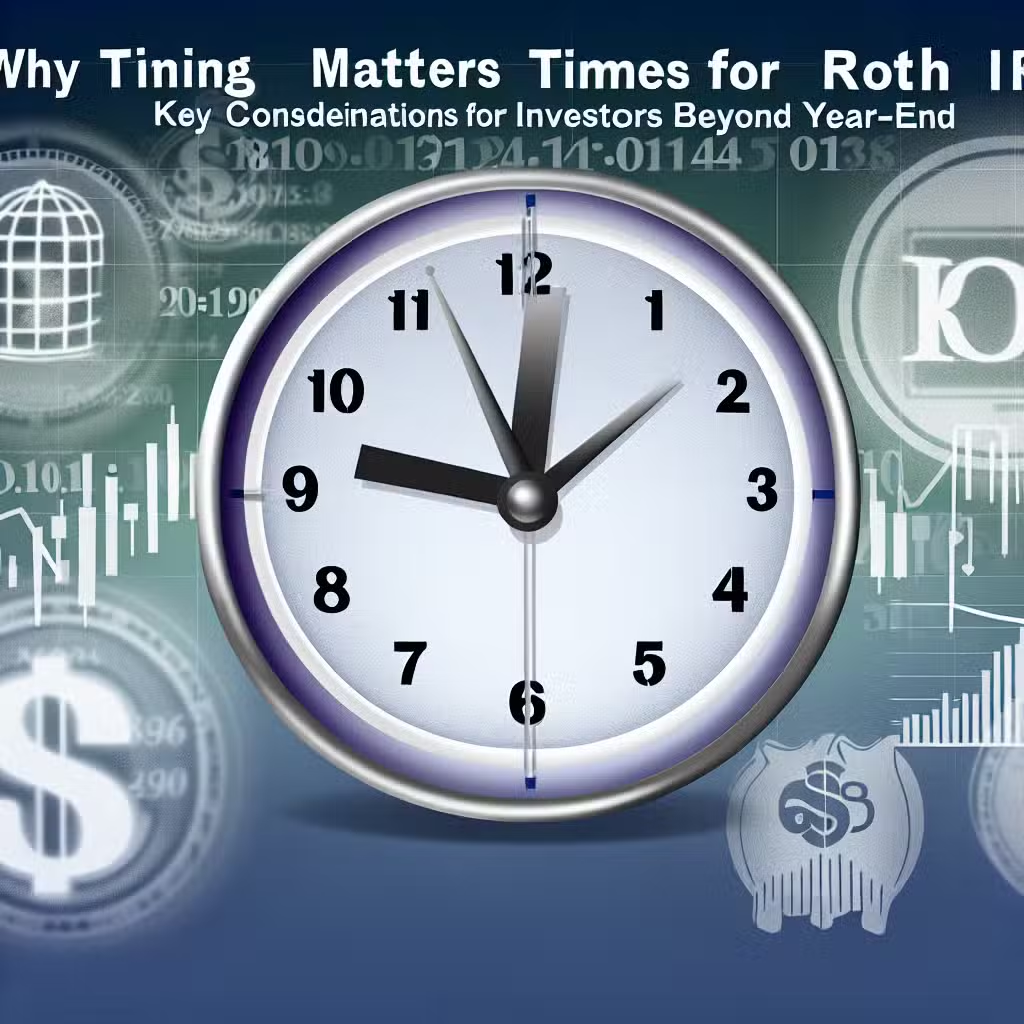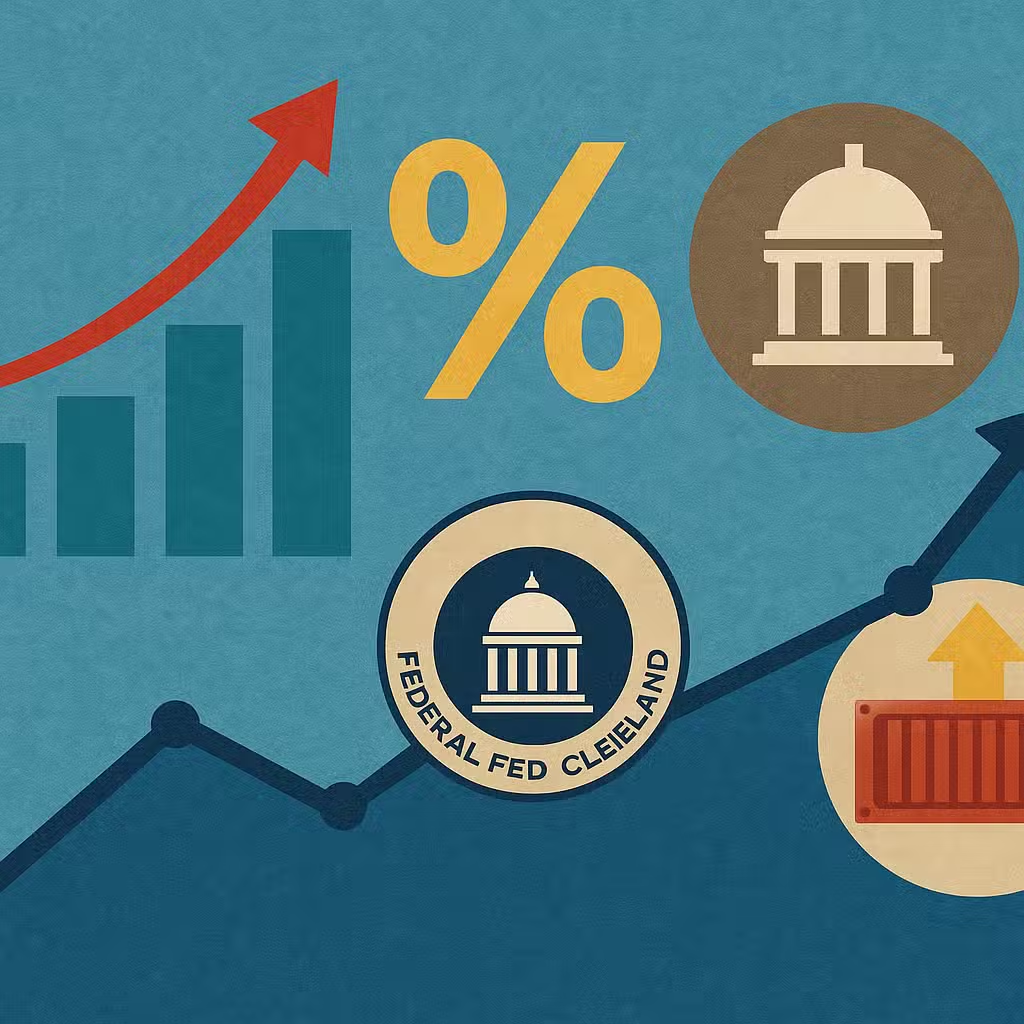Why Timing Matters for Roth Conversions: Key Considerations for Investors Beyond Year-End
Thinking about Roth conversions is a bit like deciding when to plant a tree—if you plant at the right time, you can enjoy more shade (or, in this case, tax-free growth) down the road. But timing matters, and there are both good and not-so-good times to make your move.
Why Roth Conversions Matter for Investors
Roth IRA conversions let you move money from a regular IRA (where you pay taxes later) to a Roth IRA (where you pay taxes now but get tax-free growth later). This can be a smart way to plan for the future, especially if you think your taxes will go up later on.
Investors care about this because the right timing can save money on taxes and help your retirement portfolio grow faster. But if you get it wrong, you might owe more taxes or miss out on other benefits.
The Pros: Why Consider a Roth Conversion?
- Tax-Free Growth: Once your money is in a Roth IRA, your investments grow tax-free. You won’t pay tax when you take the money out in retirement.
- Lower Taxes in Retirement: If you convert when you’re in a lower tax bracket (like early retirement), you could pay less in taxes overall.
- No Required Withdrawals: Roth IRAs don’t require you to take money out at a certain age, giving you more control over your money.
- Good for Down Markets: If the stock market drops, converting while your investments are worth less could mean a smaller tax bill now and more tax-free growth later.
The Cons: Risks and Things to Watch Out For
- Immediate Tax Bill: You have to pay taxes on the money you convert right away. This can be a big hit if you’re not prepared.
- Income Surprises: If you earn more than expected this year, your tax bill from the conversion could be even higher. It could also make you lose out on other tax benefits.
- Changing Tax Laws: Tax rules could change in the future. For example, many tax cuts from 2017 are set to expire after 2025, and no one knows what Congress will do next (Tax Policy Center).
- Impact on Health Benefits: If you’re not yet on Medicare and use the Affordable Care Act, more income from a conversion could mean you lose some health insurance subsidies.
When Is the Best Time to Convert?
Most experts say it’s smart to wait until the end of the year to do a Roth conversion. This way, you’ll have a better idea of your total income for the year, which means fewer surprises at tax time.
However, some advisors suggest acting earlier, especially if the stock market drops. Converting during a market dip can let you pay tax on a smaller balance, then watch it grow tax-free when the market recovers. Just remember, guessing the market is tricky—even pros don’t always get it right.
According to a study by Kitces.com, waiting until the end of the year for a Roth conversion often leads to better tax outcomes for most people, but market dips can offer special opportunities.
Both Sides: Bulls vs. Bears on Roth Conversions
- Bullish (Pro) Case:
- Lock in today’s tax rates before possible increases.
- Benefit from tax-free growth, especially if you have a long time before retirement.
- Gain more control over your retirement withdrawals.
- Bearish (Con) Case:
- Immediate tax hit can strain cash flow.
- Changing your income could affect your eligibility for health or tax benefits.
- New tax laws could make the move less attractive later.
Investor Takeaway
- Check your income and tax bracket before making a Roth conversion—waiting until year-end gives you a clearer picture.
- If the market drops, consider converting part of your IRA to a Roth to take advantage of lower values and future tax-free growth.
- Watch out for changes in tax laws after 2025; stay flexible with your plans.
- Think about how a conversion could affect your health insurance or other tax benefits, especially if you’re not yet on Medicare.
- Talk to a financial advisor or tax pro to make sure your Roth conversion fits your bigger financial plan.
For the full original report, see CNBC







